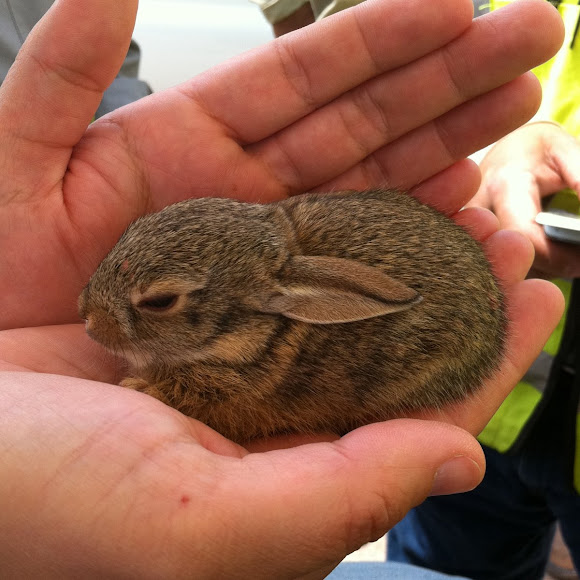(originally posted March 24, 2011)
At this time of the year, phones at wildlife rehabilitators and nature centers alike light up with questions about baby animals, especially birds and rabbits. Most of the time, the call is coming from a concerned citizen, wondering what to do about seemingly orphaned wildlife. Did the mother abandon it? Will it make it on its own? Should I take it to a rehabber? Should I take care of it myself? All of these are valid concerns, and I thought I would use this week's discussion to answer a few of these most common questions.
Did the mother abandon it?
 |
This American robin fledgling is perfectly
healthy and is waiting for its parents to
deliver its next meal.
|
This question can often be answered by simply watching the baby animal for a while. For birds, watching it for 30 minutes should be ample time to see one or both of the parents deliver food to it. The parents will leave the fledgling (a bird who recently made its first flight out of the nest) in one place while they busily collect food to bring back. Even if you don't see the parents within 30 minutes, the general rule of thumb for birds is if the chick is fully feathered and out of its nest, its more than likely doing just fine.
 |
Even a rabbit this small
can take care of itself! |
When it comes to baby rabbits (called "kittens" believe it or not!), the young achieve independence at a very young age, just 4-5 weeks. A rabbit small enough to fit in the palm of your hand is already old enough to fend for itself. If you find a nest of rabbits unattended, don't be alarmed. Just like with birds, the mother will leave her young for sometimes hours at a time in between nursings. As long as the young appear healthy, you can let them be.
Should I take the animal to a rehabber?
If the animal that you find does not seem to be doing well on its own as described above, I recommend that you first call the wildlife rehabilitation center before moving the animal. These professionals will ask you questions to gauge the status of the animal and will be able to then make the proper call of whether it would benefit from additional human help. Moving an animal unnecessarily may do more harm than good. Also, many wildlife rehabilitators are individuals operating out of their homes and may not be home if you show up without calling first.
Should I nurse the animal back to health myself?
 |
As cute as they may be, it's not a good idea
to try to raise wild animals yourself. |
In short, this is not something that I would advise, even to someone who has a strong knowledge of wildlife. First of all, keeping a wild animal in your home, even for a short period of time, is against the law. Wildlife rehabilitators have licenses to conduct their work, and have undergone extensive training, education, and testing as a requirement of their permit. Taking care of a wild animal, especially a baby, requires round-the-clock attention. Baby birds for example must be hand-fed a bare minimum of once an hour (the chickadee chicks in my backyard are fed every 2 minutes!), from sunrise to sunset, every day. They must also be kept warm and clean. As the saying goes, this work is best left to the professionals.
This spring, enjoy watching all of the wildlife babies around you and appreciate the tireless efforts of their dedicated parents. And if you happen to meet a wildlife rehabber this spring, thank them for their tireless efforts as well!




No comments:
Post a Comment